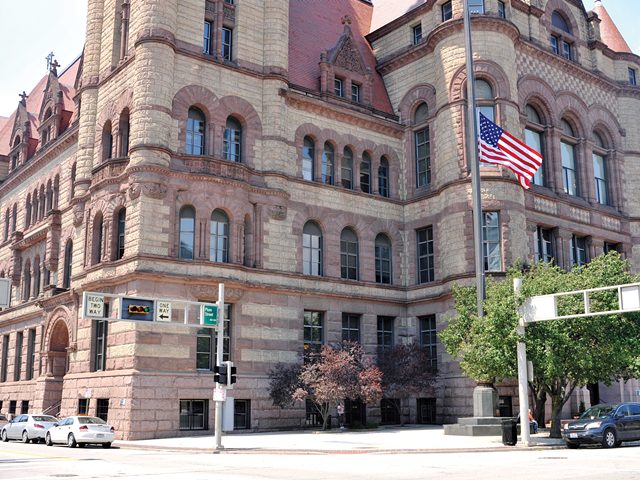Hamilton County Judge Robert Winkler’s ruling last week has
already led to the dissolution of one project
, according to Mayor Mark Mallory. The Kinsey Apartments project fell through after City Council was unable to expedite a change in the building’s classification that would have enabled access to state tax credits. Winkler’s ruling effectively eliminated the city’s use of emergency clauses, which the city used to remove a 30-day waiting period on passed laws, by ruling that all Cincinnati laws are open to referendum. The ruling means the city can no longer expedite laws even in extreme cases, such as natural disasters. The city is appealing the ruling.Council members Chris Seelbach and P.G. Sittenfeld are
calling for a special session of City Council
to get the city administration to answer questions about budget alternatives to laying off cops or firefighters. Mallory and other city officials claim the only way to balance the budget is to carry out Plan B, which would lay off 189 cops and 80 firefighters and make cuts to other city services. But Sittenfeld and Seelbach have proposed alternatives with casino revenue and cuts elsewhere.The Ohio House may scrap Republican Gov. John Kasich’s school funding formula to
use a “Building Blocks” model
championed by former Republican Gov. Bob Taft. The legislators say the formula will give more certainty to local officials by always providing a base of funding based on the average cost to educate a student, but the governor’s office says the approach neglects recent increases in school mobility. Kasich’s formula has come under criticism for disproportionately benefiting wealthy districts, which CityBeat covered in further detailhere
.Ohio’s per capita personal income
rose at one of the fastest rates in the nation
last year, according to an analysis from Dayton Daily News . The news is another sign of Ohio’s strong economic recovery, but it remains unclear whether the rise will bring downthe state’s income inequality
.The Ohio Democratic Women’s Caucus (ODWC) is criticizing Attorney General Mike DeWine’s efforts to exempt more health providers from providing contraceptive coverage based on religious grounds. “DeWine wants to allow all employers to deny crucial health care services like birth control, cancer screenings and vaccines if they disagree with the services due to their personal or political beliefs,” Amy Grubbe, chairwoman of the ODWC, said in a statement. As part of Obamacare, health insurance companies are required to provide contraceptive coverage — a measure that may save insurance companies money by preventing expensive pregnancies, according to
some estimates
. But DeWine and other Republicans say the requirement violates religious liberty.Ohio and the U.S. Department of Agriculture are
partnering up
to use technology to crack down on fraud in the federal food stamp program that costs the U.S. taxpayer millions of dollars a year.A public Ohio school is taking down a portrait of Jesus after
being threatened
with a lawsuit for allegedly violating separation of state and church.Duke Energy reached a settlement that will
allow the company
to raise the average electric bill for its Ohio customers by $3.72 per month.Hamilton County’s SuperJobs Center and the Ohio Department of Job and Family Services’ Veterans Program are partnering with 28 employers, ranging from the University of Cincinnati to Coca Cola, to host the annual veteran hiring event at the SuperJobs Center, located at 1916 Central Parkway, on April 4 from 1 p.m. to 3 p.m.
The Midwest Homeschool Convention at the Duke Energy Convention Center will
bring former U.S. Rep. Ron Paul and 15,000 visitors to Cincinnati
.President Barack Obama says he
wants to fund
a research project that would map the human brain.By 2020, scientists estimate the world’s solar panels will have
“paid back”
the energy it took to produce them.growing immune cells in space
to study how astronauts’ immune systems change in space.




